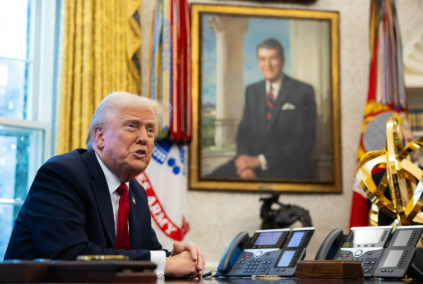For decades, the Five Eyes alliance has been the backbone of intelligence-sharing in the Western world. Formed after World War II, this partnership between the United States, the United Kingdom, Canada, Australia, and New Zealand has played a critical role in global security. By sharing classified intelligence, these nations have been able to detect and prevent threats such as terrorism, cyberattacks, and military aggression.
The Strength of Five Eyes
Each country in the alliance has a specific role based on its geographic location and intelligence-gathering capabilities. The United States, with its vast intelligence infrastructure, including the CIA and the National Security Agency (NSA), provides crucial signals intelligence and cyber monitoring.
The UK’s Government Communications Headquarters (GCHQ) specializes in intercepting global communications. Australia and New Zealand focus on intelligence operations in the Asia-Pacific region, while Canada provides expert data analysis and cyber capabilities.
The system relies entirely on trust. Each country gathers intelligence through a combination of human spies, satellite surveillance, intercepted communications, and cyber operations.
This classified information is then shared among the members of Five Eyes. In exchange, they receive intelligence that they might not have been able to collect on their own. This cooperative model has made Five Eyes one of the most powerful intelligence alliances in history, but now, that trust is beginning to erode.
China’s Pacific Push Raises Five Eyes Espionage Fears for New Zealand
Reckless Handling of Secrets
The most serious threat to Five Eyes is not an external enemy but a growing distrust within the alliance. This is primarily due to repeated failures in handling classified information, particularly by the United States. In recent years, American intelligence officials have been caught engaging in careless security practices that have put sensitive information at risk.
One of the most alarming incidents involved U.S. government officials using a commercial messaging app, Signal, to discuss sensitive military operations. Unlike government-encrypted communication systems, Signal is a widely available app that, while secure for everyday users, is vulnerable to state-sponsored hacking.
Even more troubling, some of these officials were using their personal phones while traveling in foreign countries. One high-ranking U.S. official was reportedly in Moscow at the time, raising concerns that Russian intelligence agencies may have intercepted critical military discussions.
Five Eyes Crumbling? AUKUS Faces Uncertain Future Amid Geopolitical Shifts
This is not the first time American officials have mishandled classified intelligence. A few years ago, sensitive information about a terrorist plot was leaked to a foreign government without authorization. The leak not only endangered intelligence operatives but also led to strained relationships between the U.S. and its closest allies. Additionally, there have been cases where classified documents were improperly stored, misplaced, or even exposed to individuals without proper clearance.
The failure to protect sensitive intelligence has raised alarms among Five Eyes members and other allied intelligence agencies. European and Middle Eastern intelligence services, which traditionally cooperate closely with Five Eyes, have started withholding critical intelligence. Their concern is clear—if classified information shared with the U.S. can be so easily compromised, then it could fall into the hands of adversaries like Russia or China.
The Cracks in Five Eyes
The repeated security failures have created growing divisions within the Five Eyes alliance. Some member countries are now implementing stricter controls when dealing with U.S. intelligence officials. According to reports, certain Five Eyes members have begun limiting the type and depth of intelligence they share with the United States. In some cases, allies have even resorted to classifying intelligence as “for domestic use only,” effectively cutting out their American counterparts.
Spy Network Breakdown: Germany Pushes ‘Euro Eyes’ Amid US Intel Uncertainty
The loss of trust is not just limited to Five Eyes. NATO allies and key intelligence partners in Asia are also taking a more cautious approach when sharing information with the U.S. Intelligence officers from allied nations are reportedly conducting additional security screenings before allowing American officials to access certain classified materials.
The breakdown in cooperation is already having consequences. Intelligence-sharing is becoming slower and less effective, increasing the risk of security threats going undetected. If Five Eyes members hesitate to share critical data, they may lose valuable time in responding to terrorist threats, cyberattacks, or military provocations. Intelligence operations that once relied on seamless coordination are now hampered by doubts over how securely the information will be handled.
Five Eyes was built on a foundation of trust, but that foundation is now crumbling. If the U.S. continues to mishandle intelligence, it could lead to a permanent shift in how allies share classified information. Some countries may seek alternative intelligence-sharing partnerships, reducing their reliance on the U.S. Others may establish stricter security protocols, further slowing the flow of vital intelligence.
Explosive Fallout from Five Eyes: Is Canada Being Kicked Out Under Trump’s Influence?
The alliance that once served as the world’s most effective intelligence network is now at risk of falling apart. Unless the United States takes immediate steps to regain the trust of its allies, the cracks in Five Eyes could deepen, leaving all its members more vulnerable to global security threats.

